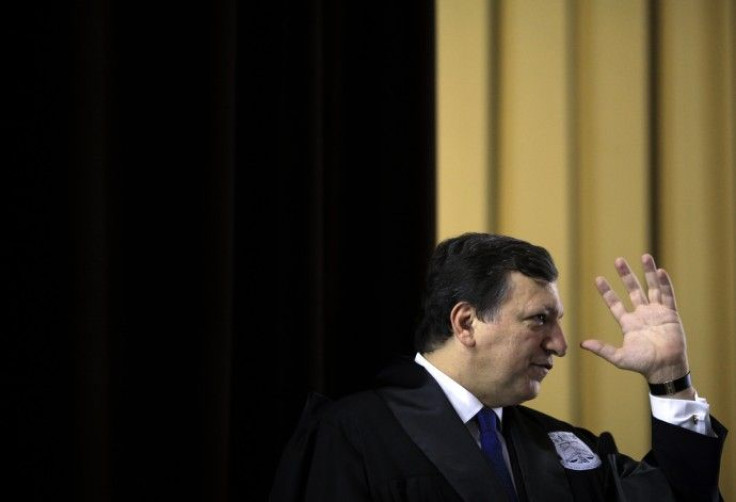G20 Calls For Nations To Work Together, But Many Drift Away

The G20 is pushing for member states to coordinate more, but it looks like many are going their own way.
Representatives from the European Union (EU) called for currency values to be market-based, but even as officials were talking about the need for open markets, several Asian nations have implemented capital controls while the United States continued a policy of increasing the money supply.
José Manuel Barroso, president of the European Commission, spoke to reporters Thursday and stressed that the guidelines adopted at previous meetings would help address some of the issues that cause central banks to devalue their currencies.
We're in the process of adopting policies to make exchange rates more market-determined, he said. It is important, Barroso added, to avoid competitive devaluations, and avoid a costly race to the bottom.
Meanwhile, at an earlier press conference the same day, the chairman of South Korea's Financial Services Commission, Dong-Soo Chin said even though the G20 hasn't hammered out a final set of agreements on financial regulation, there is agreement that capital controls should be discouraged.
But even as the G20 says it is committed to a more open system, South Korea's Ministry of Strategy and Finance hinted that it might consider capital controls. The country already instituted restrictions on the number of over-the-counter derivatives that banks can hold, as a method of controlling inflows.
Meanwhile, the United States continued on a policy of quantitative easing, buying some $600 billion of securities, though U.S. Treasury Secretary Timothy Geithner denied that it was designed to weaken the dollar.
Barroso said the value of a currency should be based on the economic fundamentals.
The real economy should be a reference, he said.
The Chinese decision to float the Renmibi against a basket of currencies is a step in the right direction, he said, as it might encourage other countries to let their currencies float freely.
Herman Achilles Van Rompuy, president of the European Council, added that it is the fundamentals of the EU -- a sound fiscal policy and strong governance -- that underlie the strength of the euro.
One point that both Barroso and Rampuy brought up is that nations should consider the spill effects of their economic policies on their neighbors. But neither was clear on how central banks, whose mandates are to stabilize their own economies, could consider those effects.
Rampuy said the EU has a mechanism in place, which results in sanctions against member states that don't comply. From the G20, he said, he expects a stronger crisis management system to emerge.
The systems they spoke of might be tested soon, as Ireland's 10-year bond yields surged to over 8 percent. Barroso said the EU is ready to support Ireland, but did not give any details as to what that might mean.
Rampuy said that in Toronto last year, the G20 agreed that member nations should halve their deficits by 2015. But many countries, notably the U.S., Ireland, and Greece, are far from that goal.
The G20 will issue its final communiqués Friday. In the meantime, we expect a very important debate, Rampuy said.
© Copyright IBTimes 2024. All rights reserved.











